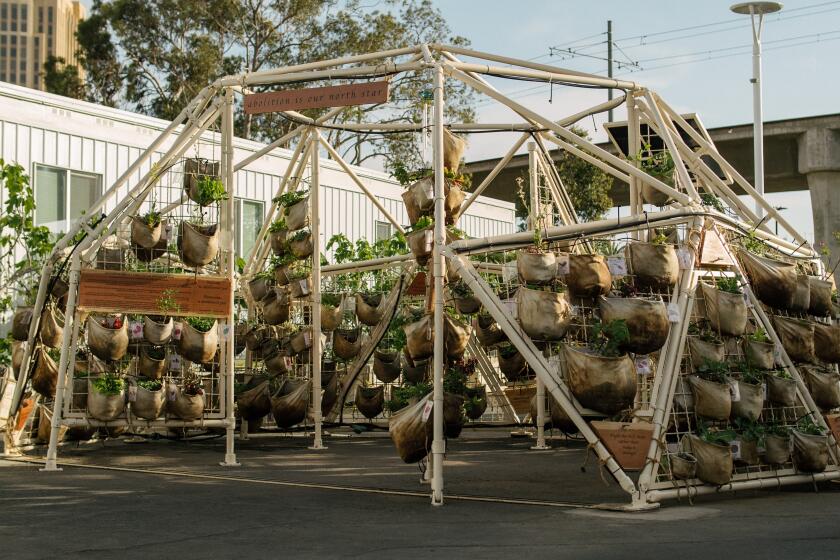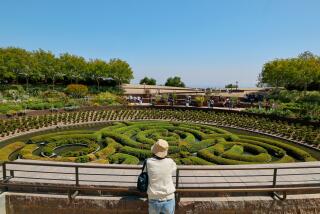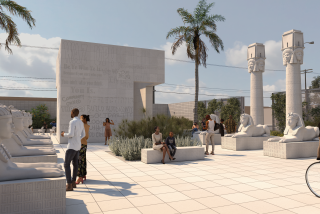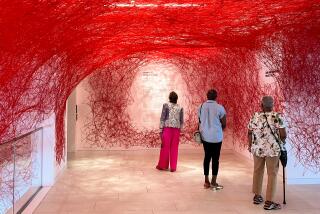100 native trees will be planted in Elysian Park for the Broad’s Joseph Beuys exhibition
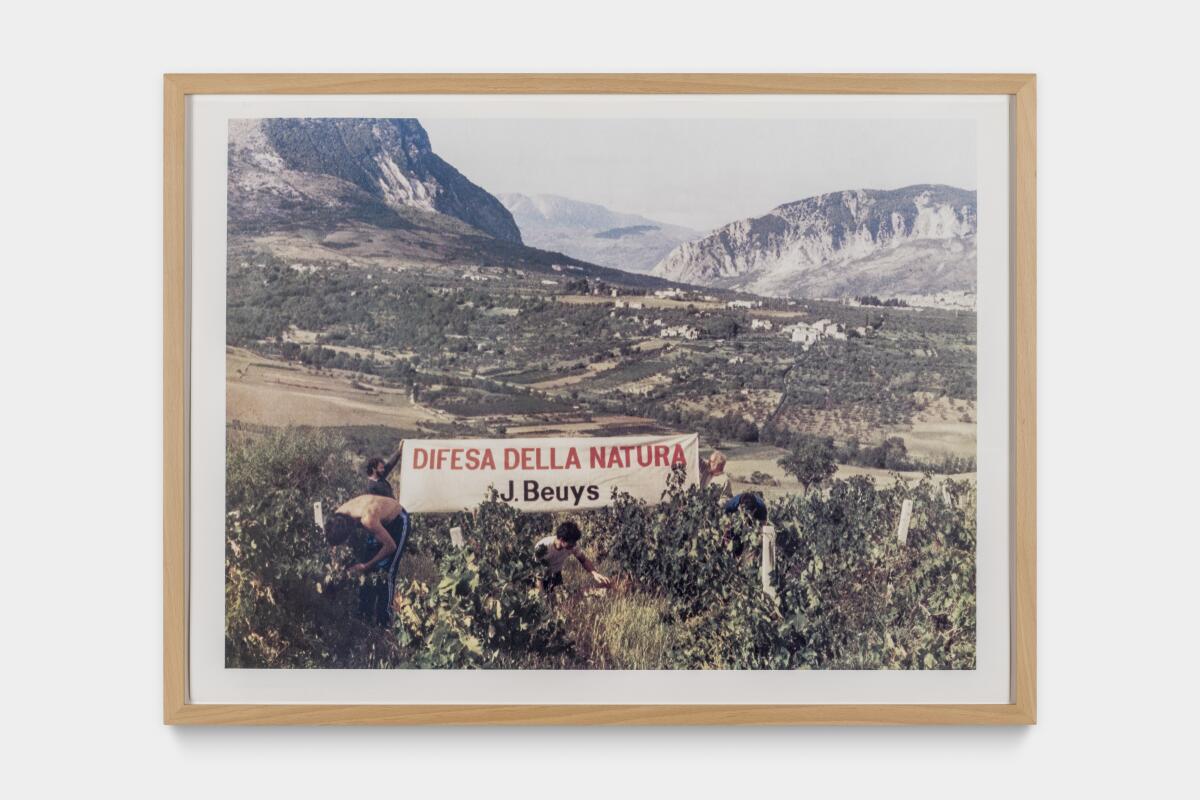
- Share via
The works and environmental activism of German contemporary artist Joseph Beuys will be featured this fall at the Broad as part of the Getty’s PST Art program, which this year focuses on the connections between art and science. The exhibition, “Joseph Beuys: In Defense of Nature,” will include a reforestation effort that involves planting 100 native trees in Elysian Park and five at the Kuruvungna Village Springs in West L.A.
The Broad curator Sarah Loyer, who organized the show with Beuys scholar Andrea Gyorody, said Beuys was “one activist among many who was sounding the alarm” on climate change decades ago, and “unfortunately, it’s more relevant than ever now.”
Beuys, who defies categorization as an artist, died in 1986 at the age of 64. He was in the midst of a monumental work of land art called “7000 Oaks” in Kassel, Germany. The project consisted of laying 7,000 black basalt stones in a pile outside the Fridericianum museum. A stone was removed from the heap and placed beside a tree each time one was planted. “7000 Oaks” took five years to complete, and Beuys’ son set the final stone beside the last tree after his father’s death, Loyer said. The oaks are now an integral part of Kassel’s ecology and stand as a symbol of regeneration.
Getty’s PST Art collaboration (previously known as Pacific Standard Time) is set to open next fall with a vast array of public programming set to examine the intersection of art and science.
“Social Forest: Oaks of Tovaangar,” created in partnership with North East Trees, Gabrielino/Tongva archaeologist Desireé Reneé Martinez and artist Lazaro Arvizu Jr., extends Beuys’ ideas and practice into the current day.
“We’re really excited to be bringing this project to Los Angeles,” said Loyer. “It starts with Beuys’ seed of an idea, and then it jumps off and thinks about ways that this idea can be relevant to Los Angeles today as opposed to Kassel, Germany, in 1982.”
The Beuys exhibition at the Broad, which opens Nov. 14, will feature more than 400 works of art that represent Beuys’ practice and his dedication to environmental justice and democracy.
“This exhibition marks the first time we are displaying our uniquely deep collection of Joseph Beuys’ important and extensive multiples at the Broad, and, through “Social Forest,” our first permanent offsite project,” Joanne Heyler, founding director and president of the Broad, said in a news release. “Through his innovative concept of ‘social sculpture,’ he demonstrated the power of art to connect and uplift — affirming the resilience of humans to reconcile with each other and with the past, and seed a better, more just future.”
Although Beuys is tangentially associated with the experimental Fluxus movement of the 1960s and ’70s, he steered his own course and during his lifetime created monumental sculptures and land, performance and conceptual art. He was also a teacher and a founding member of the German Green Party.
Loyer is thrilled to introduce American audiences to Beuys’ work. In Germany, Beuys is a household name on the same level with Andy Warhol in the U.S.
More to Read
The biggest entertainment stories
Get our big stories about Hollywood, film, television, music, arts, culture and more right in your inbox as soon as they publish.
You may occasionally receive promotional content from the Los Angeles Times.
